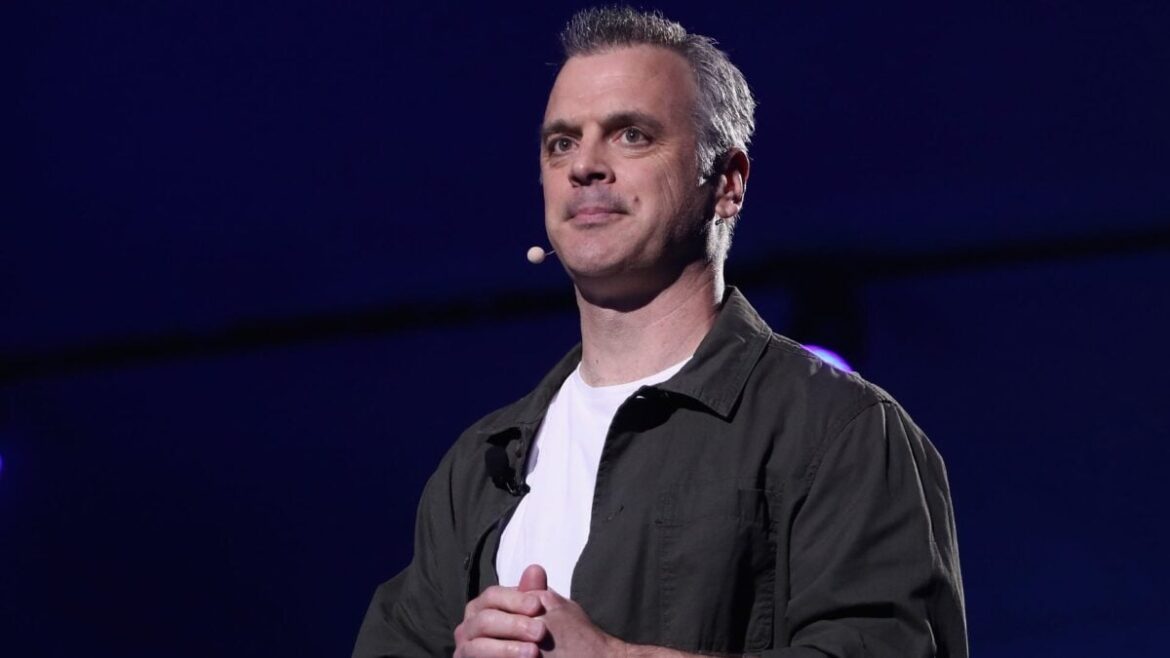Bethesda’s former VP of publishing, Pete Hines, still sounds skeptical of Game Pass. Nearly two years after leaving the Fallout and Elder Scrolls maker, the veteran video game marketer shared his concerns about subscription gaming’s long-term impact on the industry. “You need to properly acknowledge, compensate, and recognize what it takes to create that content and not just make a game, but make a product,” he said in a new interview with DBLTap.
Hines had worked at Bethesda for over two decades when it was acquired by Microsoft in 2021 for over $7 billion. While the relationship seemed like a natural fit following a long history of closely working together, going back to the days of porting Morrowind to Xbox, there were clear cracks as Microsoft’s gaming strategy evolved following the launch of the Xbox Series X/S.
Internal communications revealed during the FTC trial over the tech giant’s acquisition of Activision Blizzard suggested Hines in particular was frustrated with a mandate that Bethesda stop bringing its games to rival platform PlayStation 5. Indiana Jones and the Great Circle was multiplatform before becoming an Xbox exclusive, only for it to go multiplatform again when Microsoft pivoted in the years after Hines retired.
While the former exec doesn’t touch on that messy 180 in the new interview, he does address concerns about subscription gaming and especially how servicing something like Game Pass drives incentives within a massive publishing organization like Xbox. Earlier this summer, Microsoft’s gaming division was hit with more mass layoffs, including the cancellation of an internally well-regarded loot shooter project called Blackbird that was being developed at the Bethesda-adjacent ZeniMax Online.
I’m involved enough to know I saw what I considered to be some short sighted decision making several years ago, and it seems to be bearing out the way I said. Subscriptions have become the new four letter word, right? You can’t buy a product anymore. When you talk about a subscription that relies on content, if you don’t figure out how to balance the needs of the service and the people running the service with the people who are providing the content – without which your subscription is worth jack shit – then you have a real problem. You need to properly acknowledge, compensate and recognize what it takes to create that content and not just make a game, but make a product. That tension is hurting a lot of people, including the content creators themselves, because they’re fitting into an ecosystem that is not properly valuing and rewarding what they’re making.
A big topic recently has been whether Microsoft’s first-party game studios are compatible with Game Pass. The company says Game Pass is profitable and that it takes into account lost sales from games being available for free to paying subscribers. But it’s still unclear how the development costs for those games are captured within the company and what the new metrics are for success. Does total minutes of your game played matter more than total sales? Would studios like Hi-Fi Rush maker Tango Gameworks still have been shuttered if that were the case?
However the current system works, Hines seems concerned it’s not “properly valuing and rewarding” what developers at the company are making. And that’s before getting into questions about recent mass layoffs, their impact on morale, and institutional brain drain when senior people disappear from an organization. But it’s also unclear how much the Game Pass question will ultimately matter in the long run.
Subscriber numbers appear to have hit a ceiling and Microsoft is now selling games on PS5, a marketplace much closer to the product-oriented one Hines says teams like those inside Bethesda were originally designed for. At the rate Microsoft keeps pivoting, it’s hard to know where things will go next.

